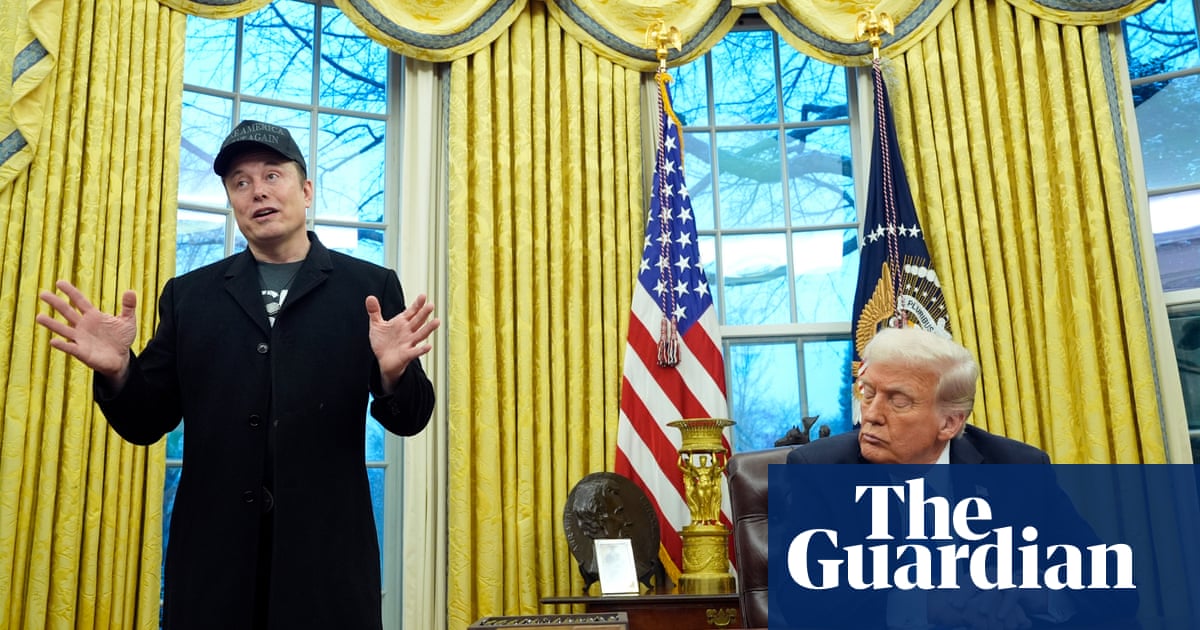The Peace Corps is offering staff a second “fork in the road” buyout, according to a source familiar with the matter. Allison Greene, the chief executive of Peace Corps, sent an email to staff on Monday with an update about the “department of government efficiency” (Doge) assessment of the agency.
Greene said to expect “significant restructuring efforts” at Peace Corps headquarters, according to the email seen by the Guardian. Starting on 28 April and going through 6 May, direct hire and expert staff are being offered a second deferred resignation program, what Elon Musk’s Doge has referred to as a “fork in the road” buyout. Greene referred to this offer as “DRP 2.0”.
Eligible staff will hear from human resources and “are strongly encouraged to consider this option”, Greene wrote. The offer applies to employees both domestically and overseas.
Peace Corps will “continue to recruit, place, and train volunteers”, Greene said, indicating that the cuts are specifically for agency staff and will not affect volunteers.
A Peace Corps spokesperson confirmed that Doge began the cuts on Monday.
“The agency will remain operational and continue to recruit, place, and train volunteers, while continuing to support their health, safety and security, and effective service,” the spokesperson said.
Since Donald Trump was inaugurated and tapped Musk to head the unofficial government agency Doge, the secretive group hassteadily worked to slash budgetsand lay off workers in federal agencies.
With the mission to identify “waste, fraud and abuse”, it has targeted nearly two dozen agencies and fired hundreds of workers. Doge hasespecially focusedon agencies involved in foreign aid and development, such as the US Agency for International Development (USAID).
Doge started itswork at Peace Corps headquartersin the beginning of April, according to two people familiar with the situation who spoke on the condition of anonymity. A Doge representative, Bridget Youngs, visited the agency headquarters at that time and asked for access to the agency’s financial records. Doge workers have continued to work in the building over the following weeks.
Peace Corps staffers were told to cooperate with Doge and “if data from the system is requested, confirm what is required to meet their needs (data, format, etc)”. Staff were additionally told that “under all circumstances, ensure that clear records are kept on what is requested and provided”.
It’s unclear how many Peace Corps jobs will be cut or if Doge will direct the agency to do more than this new round of buyouts. In a separate email sent by the Peace Corps office of human resources on Monday and seen by the Guardian, the agency wrote: “At this time, we cannot give you full assurance which positions will remain – or where they will be located – after an anticipated workforce restructuring.”
The Peace Corps sends volunteers to countries around the world to work for two years on public health, economic development and education projects. It was created in 1961 by John F Kennedy and has sent more than 240,000 volunteers abroad. It currently hasaround 3,000 volunteersworking in 60 different countries.
